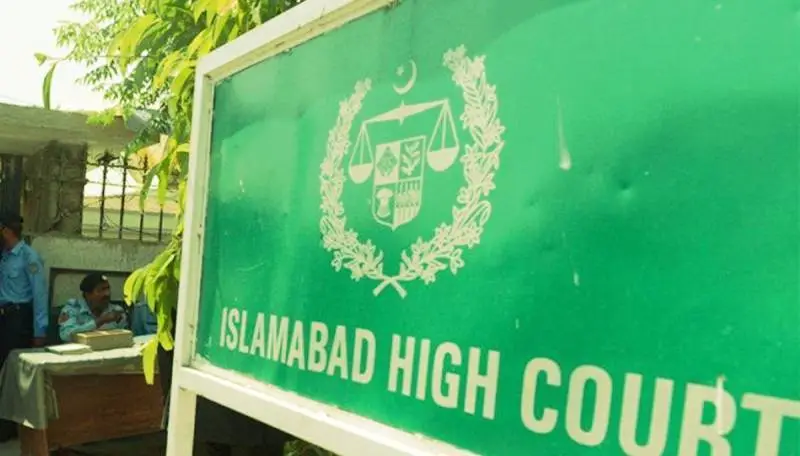High Court Announces Unprecedented Policy to Combat Drug Problem in Educational Institutions
Islamabad: The Islamabad High Court (IHC) has introduced a firm new policy aimed at curbing the growing drug problem within educational institutions across the federal capital. According to the court’s directive, if drug supply is found within a school, college, or university, the principal or head of the institution will be held responsible and strict legal action will follow.
This significant ruling was issued by Justice Inam Amin Minhas during a hearing on complaints related to drug use in educational institutions. The policy marks a decisive shift in accountability, aiming to make school administrations more vigilant against narcotics on their campuses.
Court Proceedings Highlight Alarming Drug Statistics
During the hearing, the Islamabad Police presented a detailed report revealing concerning figures. From January to the present, a total of 1,314 drug-related cases have been registered in the federal capital. Authorities have also arrested 1,408 suspects in connection with these cases.
The report highlighted that 22 drug peddlers were caught near schools and colleges, underscoring how narcotics networks are actively targeting young students. Law enforcement agencies seized 3 kilograms of heroin, 3 kilograms of crystal meth (Ice), and 18 kilograms of hashish during operations in areas close to educational institutions.
These statistics paint a troubling picture of how drugs are being circulated around schools and universities, raising concerns about the safety and well-being of students.
“Nasha Ab Nahi” Campaign Under Scrutiny
Police officials informed the court that they have launched a new awareness campaign titled “Nasha Ab Nahi” to address the growing narcotics issue. The initiative focuses on conducting seminars, workshops, and awareness sessions within schools and colleges to educate students about the dangers of drug use.
However, Justice Inam Amin Minhas expressed reservations about the effectiveness of these campaigns. He questioned whether such awareness initiatives were producing tangible results and directed the concerned authorities to submit detailed performance reports of these committees.
He emphasized that while awareness is important, preventive measures and strict monitoring within educational environments are equally essential to counter the menace of drugs effectively.
Principals to Face Legal Consequences
In a bold move, the Islamabad High Court directed that no event or activity should be held inside educational institutions without the prior approval of the principal. The purpose of this order is to tighten administrative control and ensure that no suspicious or unauthorized activities take place within school premises.
Justice Minhas clarified that if drug supply is discovered within a school or college, the principal will be held accountable for negligence or failure to maintain security. The court further ordered investigations into the administrations of institutions located near high-risk or affected areas, stating that they must also take responsibility for monitoring their surroundings.
This directive places a significant onus on educational administrators to strengthen internal checks, cooperate with law enforcement, and take proactive measures to protect students from drug exposure.
Educational Institutions as Targets
Experts have repeatedly warned that drug traffickers often target schools and colleges to build long-term markets among young individuals. Students are seen as easy targets due to peer pressure, lack of awareness, and sometimes limited supervision.
The recent statistics presented in court reinforce these concerns. With over a thousand drug-related cases already reported this year, the authorities are under pressure to adopt more robust strategies. By holding principals legally accountable, the court aims to close administrative loopholes that allow drug networks to exploit educational spaces.
A Wake-Up Call for School Administrations
The IHC’s ruling is widely being seen as a wake-up call for educational institutions across Islamabad and potentially the entire country. Principals and school heads are expected to review their security protocols, enhance surveillance systems, and work closely with local police to report any suspicious activities.
Some education experts argue that this decision could also encourage a culture of accountability and vigilance within schools. They believe that by making top management responsible, institutions will have a stronger incentive to implement anti-drug measures effectively.
Collaborative Approach Needed to Tackle Drug Problem
While the court’s policy emphasizes legal accountability, experts suggest that a multi-stakeholder approach involving parents, teachers, law enforcement agencies, and communities is essential to address the root causes of drug abuse among students.
- Parents need to stay informed about their children’s activities and social circles.
- Teachers should be trained to identify early signs of drug use or involvement.
- Police and educational institutions must share intelligence to disrupt peddlers’ networks.
- Government agencies can strengthen awareness campaigns and rehabilitation programs for affected youth.
The “Nasha Ab Nahi” campaign can play a more effective role if combined with strong monitoring, regular inspections, and transparent reporting mechanisms.
Broader Implications for Policy Nationwide
Although this ruling currently applies to Islamabad, it may set a precedent for other provinces and regions to adopt similar policies. Drug use in educational institutions is not limited to the capital, and similar cases have been reported in different parts of the country over the years.
By placing responsibility on school leadership, the judiciary has taken a firm stance that could influence national education and narcotics control policies in the future. If implemented effectively, this policy may not only reduce drug circulation in schools but also contribute to building safer learning environments for students.
The Islamabad High Court’s groundbreaking policy to hold principals accountable for drug supply within their institutions marks a new chapter in the fight against narcotics in Pakistan’s education sector. With alarming drug statistics and growing concerns about student safety, the decision emphasizes responsibility, vigilance, and collaboration as key pillars of prevention.
Authorities now face the challenge of ensuring that this policy is not only enforced but also supported by meaningful actions on the ground. For the policy to succeed, educational administrations, law enforcement agencies, and communities must work together to keep schools drug-free and safeguard the future of students.









